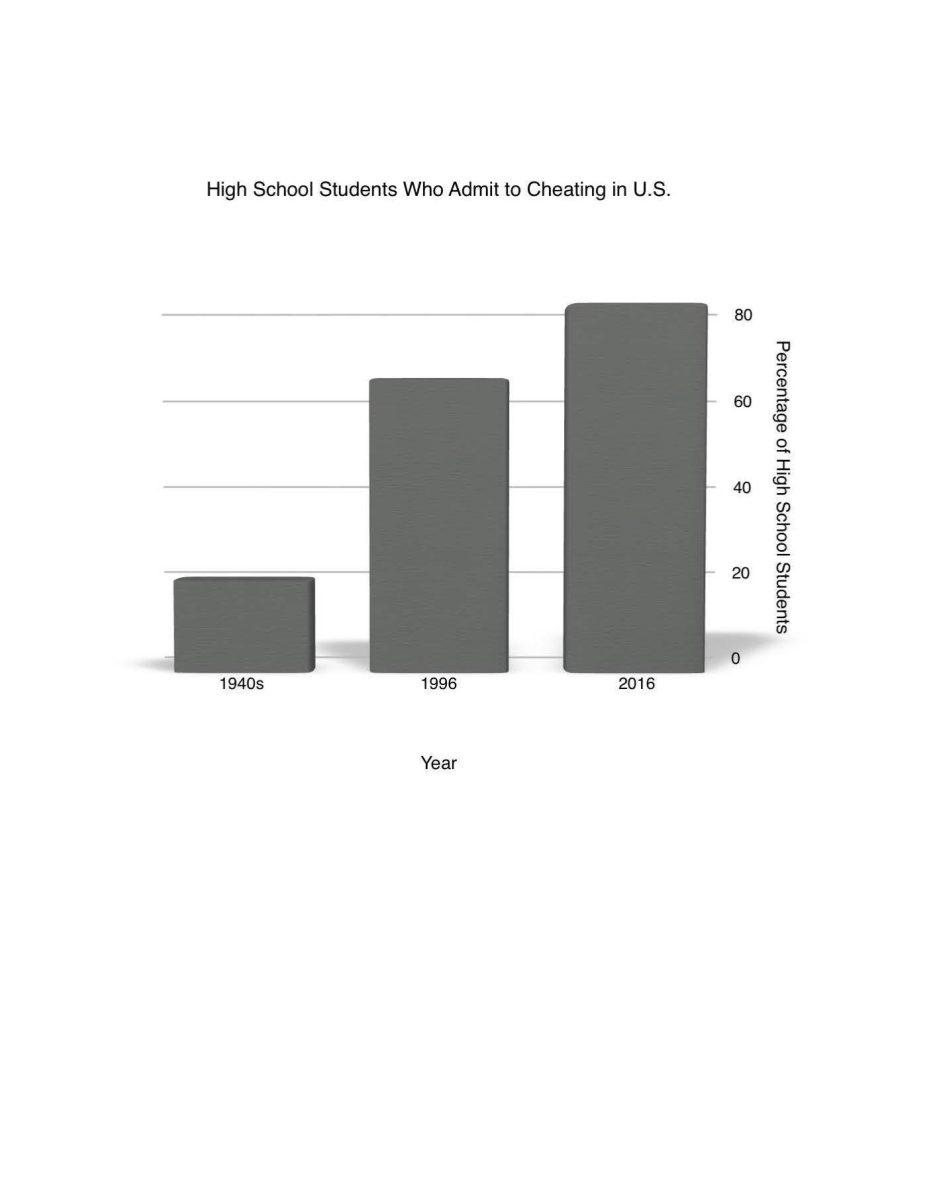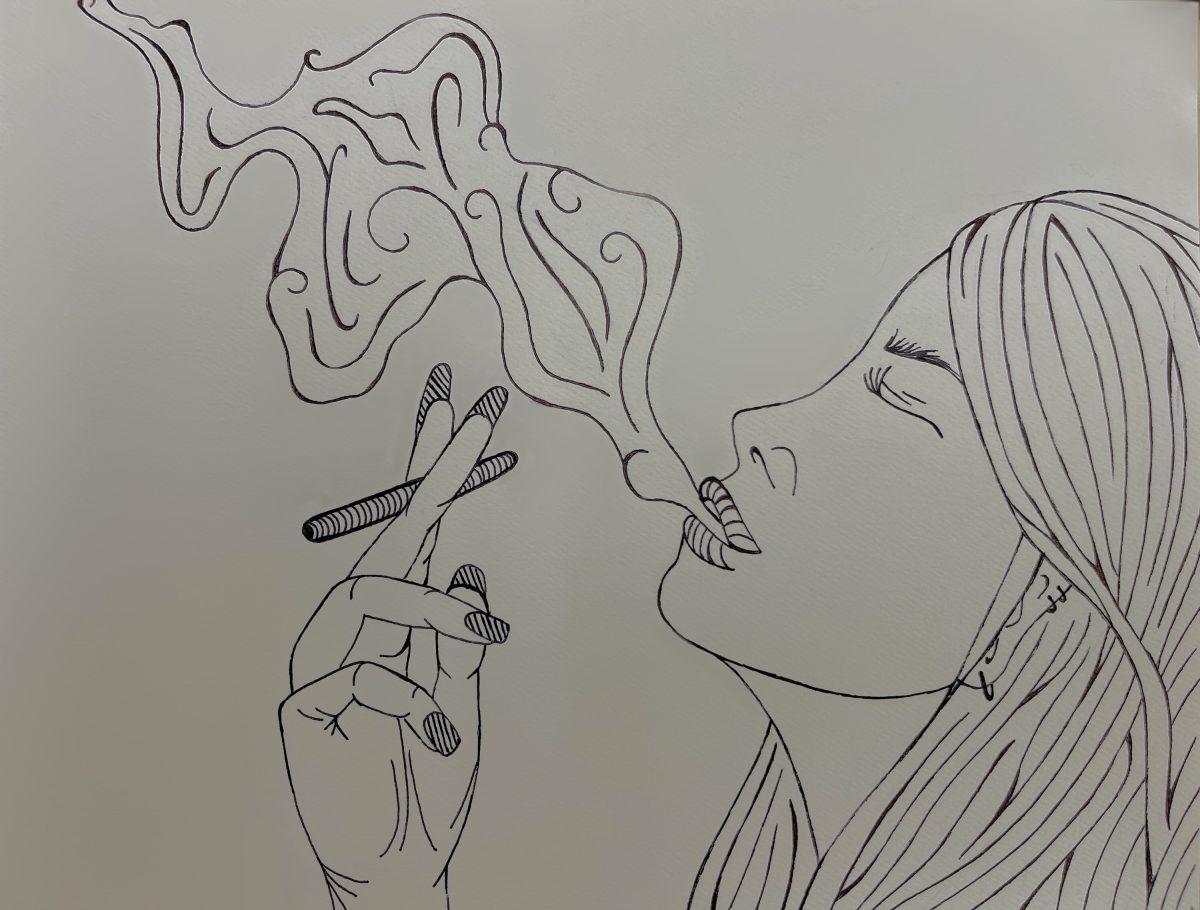It’s really easy to pull out your phone, type the first problem into Google, find a website with the answers, and copy them down. The chances of being caught are slim, many people do it, and repercussions are inconsistent.
However, there are underlying consequences to this form of cheating. According to the Educational Testing Service (ETS), 70 to 90 percent of all high schoolers in the United States admitted to some type of cheating. Cheating has been a continuous problem in school, but the ETS has found that cheating among high school students has risen dramatically in the past 75 years, with only 20 percent of high school students admitting to cheating in the 1940s.
There are several theories as to what caused the increase in unethical behavior. One that has become apparent is a correlation between the heightened expectations of students in order to succeed and the dishonesty in school on both tests and copying homework. With such high competition for acceptance into highly ranked universities, many students feel that cheating is necessary to be able to compete with other students nationally.
“I think for a lot of students, cheating is a way of getting out of doing the work,” junior Katie Kradepohl said.
“They feel stressed or short on time, so instead of doing their own work, they plagiarize or copy from another student.”
Grades alone are becoming more imperative in the college selection process. A student is much more likely to be accepted into many colleges with straight A’s in challenging classes than anything else. With that in mind, it makes it seem justified for many high achieving students to feel like cheating is necessary to hold their rank and make acceptance into difficult colleges a possibility, even if it contradicts their ethical stance.
“I am considered a high achieving student, along with many of my friends, and we have been known to cheat on many occasions,” an anonymous student said. “We know it’s wrong, of course, but you’re almost never caught, and so it’s just easier to do that. In my math class, all of the tests and assignments can be found online, so it’s really tempting to simply look up the answers instead of doing the work.”
This issue brings into question more than just the loss of learning that results from plagiarism. Without having an ethical dilemma, the authenticity of work in the future, either in college or in the workforce, is threatened. Knowing that cheating is prevalent in schooling could cause employers to hesitate before trusting a resume, for example, or the level of integrity of new employees.
Cheating in college is as prevalent if not more so than high school. A recent case of mass cheating involved a take-home test given to a Harvard government class of 279 students. Almost half of the class was accused of cheating, and were either put on probation or asked to withdraw from Harvard for a year. Even students at the top of academic achievement feel obligated to cheat in order to succeed, despite how severe the consequences are.
It is a major problem throughout schools nationally, and there is no easy way to solve it. If just one school fixes the problem, it could be a disadvantage for their students due to the comparison between those students and others where cheating is prevalent.
Many teachers at San Marin have acknowledged the issue and have taken steps in order to prevent dishonesty in classes. Phone caddies have been added to classrooms to limit internet access. English teachers utilize turnitin.com to catch plagiarism on essays. However, there are few way to catch cheating on homework, and no method of prohibiting cheating is foolproof.
“No matter how much they help or teach, there will always be one kid who will end up cheating regardless,” senior Lauren Enslin said.
Additionally, the repercussions for being caught at San Marin are inconsistent and do not provide a way of preventing cheating from occurring.
“In my class, I have the students sign the bottom of their tests, saying that it is their own work,” math teacher David Blair said. “If I caught a student cheating, I would probably give them a zero on the test and contact their parents, but I’m not entirely sure on what the policy is.”
According to the Board Policy on Academic Honesty, the first offence of cheating is a letter given to student’s parent/guardian, counselor, and assistant principal. The second offence results in reducing the course grade by one letter in the class that it occured; a conference with teacher, parents, department head, and administrator; and a record in permanent cumulative file. Also, if the student was caught in an AP or Honors class, the student will be removed from that class and placed in a college prep course.
“In my old school, we had a system that teachers could communicate with each other about large assignments so that students didn’t feel stressed and obligated to cheat,” Principal Mark Sims said. “I think it would be a great idea to implement that here, so that students can ensure that they do each assignment ethically.”






































